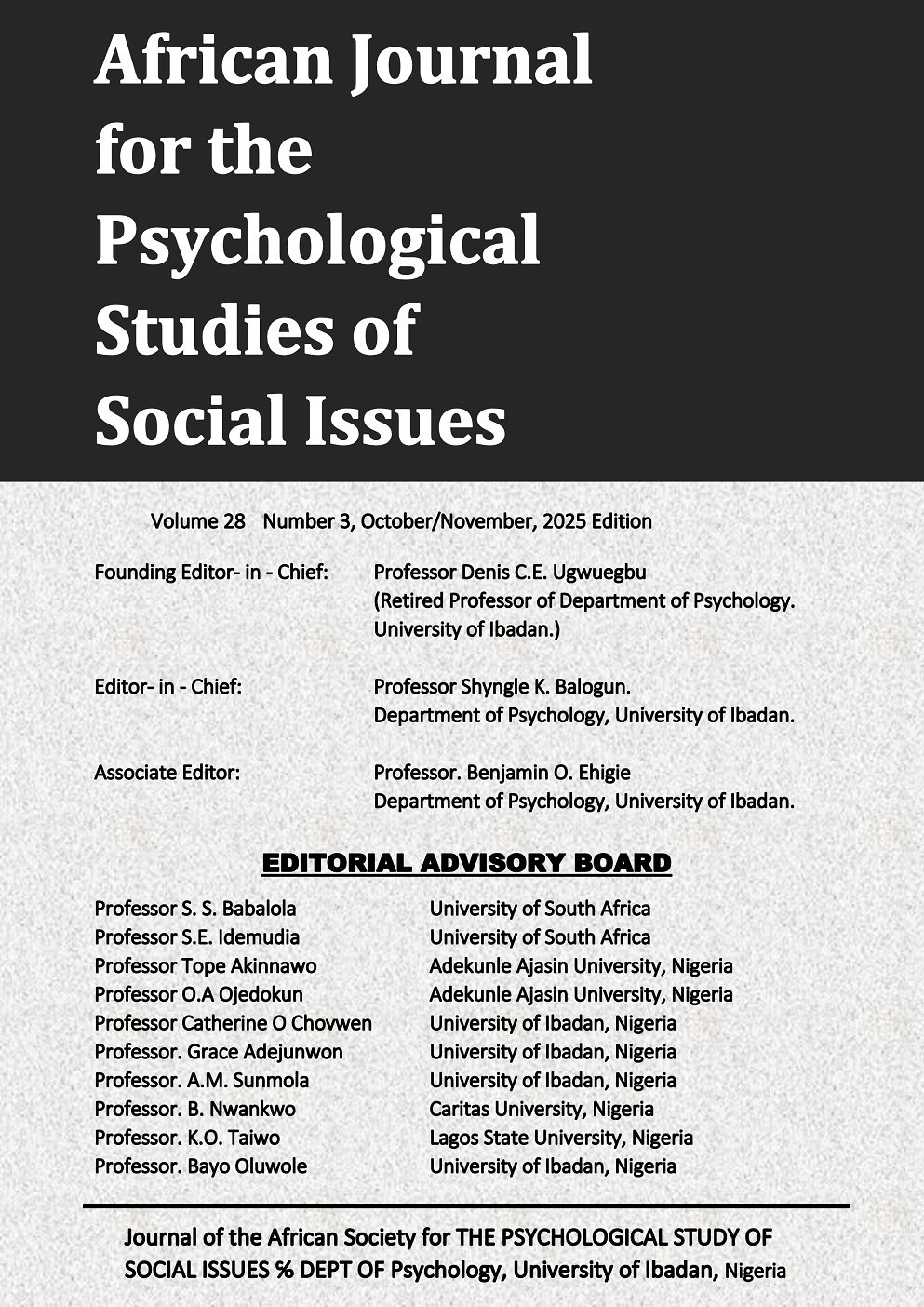EXPLORING THE ROLES OF FAMILY SUPPORT AND PEER RELATIONSHIPS IN FOSTERING RESILIENCE AMONG UNIVERSITY UNDERGRADUATES
Abstract
Using a correlational research design, this study investigated the influence of perceived family support and the quality of peer relationships on resilience among undergraduates at the Federal University of Oye-Ekiti, Ekiti State. A total of 299 students aged 18 to 21 years participated in the survey. Data were collected using a structured and standardised questionnaire designed to measure perceived family support, quality of peer relationships, and resilience. Statistical analyses conducted included descriptive statistics, Pearson product-moment correlation, independent sample t-tests, analysis of variance (ANOVA), and multiple regression analysis to explore both main effects and interaction effects among variables. The results revealed a significant positive correlation between family support and resilience (r = .512, p < .05), indicating that students who reported higher levels of family support also demonstrated greater resilience. Similarly, a significant positive correlation was found between peer relationship quality and resilience (r = .467, p < .05), suggesting that students with stronger and more supportive peer networks exhibited greater resilience. Furthermore, multiple regression analysis showed that peer relationships moderated the association between family support and resilience. Specifically, students who reported high family support and positive peer relationships exhibited the highest levels of resilience, highlighting the interactive and strengthening nature of these social factors .Results from the t-test analysis indicated that there were no significant gender differences in resilience scores (p > 0.05), suggesting that male and female students experience comparable levels of resilience. However, the results of ANOVA revealed significant differences in resilience between age groups (F(3, 296) = 3.102, p = 0.027), indicating potential developmental variations in resilience during late adolescence and emerging adulthood. These findings underscore the critical role of both family and peer contexts in fostering resilience among university students. The study demonstrates that strong family support and quality peer interactions jointly contribute to greater psychological resilience during the transitional period of higher education. Consequently, interventions aimed at promoting student resilience should consider strategies that encourage family involvement and facilitate positive peer engagement. These insights have practical relevance for university counsellors, educators, and policy makers looking to strengthen the psychological well-being and academic success of undergraduates through holistic support systems.
Keywords: family support, peer relationships, resilience, undergraduates
Downloads
Downloads
Published
Issue
Section
License
Copyright (c) 2025 AFRICAN JOURNAL FOR THE PSYCHOLOGICAL STUDIES OF SOCIAL ISSUES

This work is licensed under a Creative Commons Attribution 4.0 International License.
Copyright is owned by the journal.




